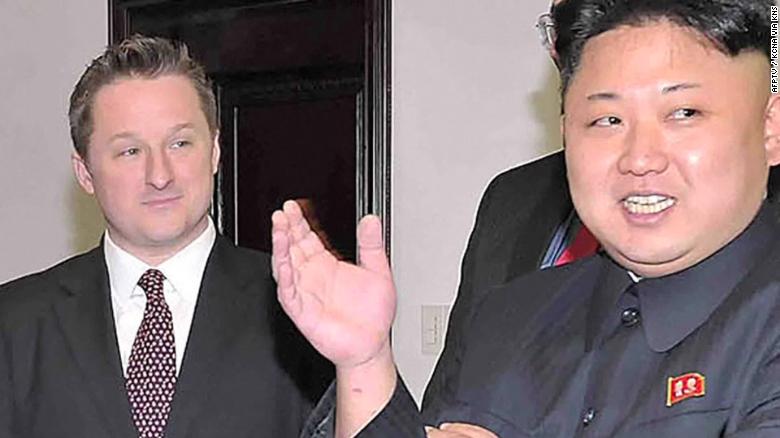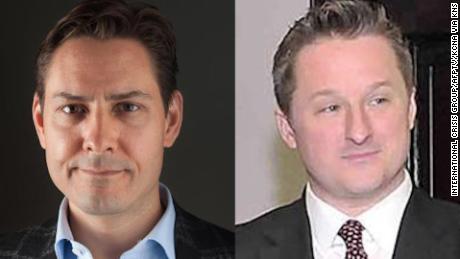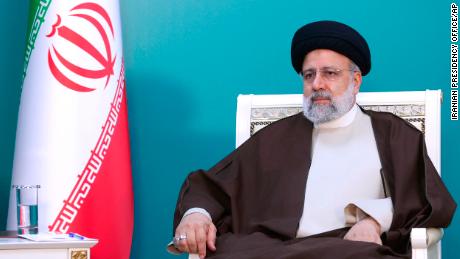(CNN)A second Canadian has been detained in China in a potential act of retribution that threatens to escalate the diplomatic dispute between Washington, Beijing and Ottawa following the arrest of a Chinese Huawei executive in Canada.
On Thursday, China's Ministry of Foreign Affairs confirmed that Canadians Michael Spavor and Michael Kovrig are "being investigated" on suspicion of "activities that endangered China's national security."
Canada's Foreign Ministry reported Thursday that both Spavor and Korvig were detained in China.
Speaking at a daily press briefing in Beijing, Chinese Foreign Ministry spokesman Lu Kang said authorities had taken "compulsory measures" on the two men on Monday and that both cases remain under investigation.
When asked by CNN, Lu would not specify what "compulsory measures" means nor would he be drawn in to whether the two men are still in custody. The term "compulsory measures" is generally used to refer to detention in China.
"As far as I know, Beijing State Security Bureau and Liaoning State Security Department notified the Canadian Embassy separately, and the two persons' legal rights and interests have been guaranteed," Lu added.
Spavor is the founder of the Paektu Cultural Exchange, a company that helps facilitate trips to North Korea. He has assisted former NBA player Dennis Rodman in travel to Pyongyang to meet North Korean leader Kim Jong Un.
Kovrig is a former Canadian diplomat who works for the International Crisis Group.
Experts have expressed concern that Kovrig and Spavor are being held in retaliation over Canada's arrest of Meng Wanzhou, a top executive at Chinese telecommunications firm Huawei, earlier this month in Vancouver, British Columbia.
Meng, the daughter of Huawei's founder, is accused of helping her company dodge US sanctions on Iran, according to Canadian prosecutors. She has been released on bail while a Canadian court decides whether to extradite her to the United States to face charges there.
In a statement earlier this week, Le Yucheng, China's vice minister of foreign affairs, called Meng's arrest "lawless, reasonless and ruthless."
Andrei Lankov, a professor at South Korea's Kookmin University and an expert in North Korean and East Asian affairs, said it appears that China and Canada are engaged in a "hostage game."
"I'm a bit surprised they (the Chinese government) chose Michael, who is from very humble origins," Lankov said. "He's definitely not the son of a CEO of a major Canadian company."
Lankov, who has known Spavor for 10 years, described the Canadian as a likable, easygoing, charismatic man who wasn't much interested in international politics.
"He sees North Korea as a misrepresented underdog, and as such he wanted to basically improve its image while making some money in the process," the professor said.
Lankov said China could also be attempting to send a secondary signal by detaining two Westerners who travel to mainland China often for business involving North Korea.
"Historically, China was remarkably willing to overlook a great deal of North Korea activity of all kinds ... happening on Chinese territory," he said.
"(That) is obviously coming to an end."
'We were really surprised by this arrest'
The Chinese government has detained foreign employees of nongovernmental organizations in the past. In January 2016, Swedish human rights advocate Peter Dahlin was taken into custody for three weeks.
China has since passed legislation further restricting what foreign NGOs can do on Chinese soil. They are required to register with the government and are prohibited from endangering "China's national unity, security, or ethnic unity; and must not harm China's national interests, societal public interest."
China's Ministry of Foreign Affairs declined to comment on Kovrig's case Wednesday but said if International Crisis Group personnel were operating in the country, they would have been in violation of Chinese law.
Hugh Pope, director of communications and outreach for the group, said his organization has "still received no information about Michael (Kovrig) from China directly since his detention on 10 December and we are above all concerned for his health and safety."
Pope said the International Crisis Group closed its Beijing office in December 2016 to comply with the new law.
Kovrig joined the group last year as its northeast Asia senior adviser and has worked from Hong Kong, which operates under a different legal framework than the rest of mainland China. He is reportedly being held in Beijing.
Kovrig regularly visits Beijing "to meet officials, attend conferences at the invitation of Chinese organizations, and on personal visits," Pope said.
"Frankly, we were really surprised by this arrest after a decade of engagement with the Chinese authorities. This is the first time we (have heard of) such an accusation. Our board of trustees includes two Chinese board members," he said.
"It goes without saying that neither Crisis Group, nor did Michael have anything to do with the Huawei case in Canada. What is clear to us is that Michael has been doing what all Crisis Group experts do: undertaking objective and impartial research -- in his case meeting with Chinese officials so that we can represent their views in our work and developing policies that can help end conflicts."





















